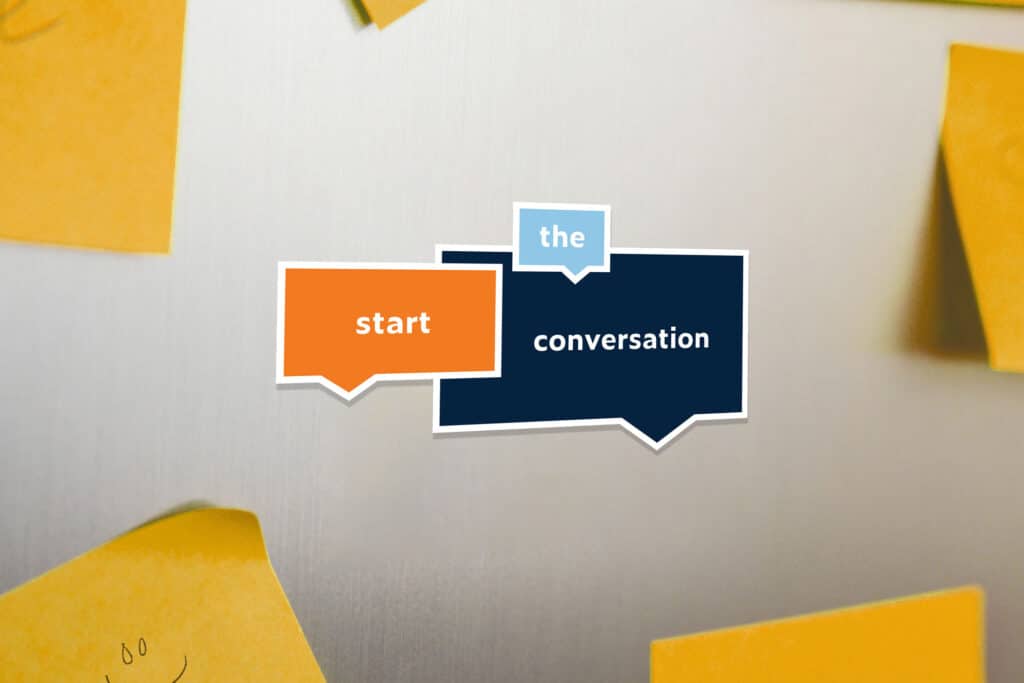Jason Maciejewski :
Welcome to episode six of The Senior Alliance, a podcast exploring resources and issues in the aging field. I’m Jason Maciejewski, chief advocacy and planning officer with The Senior Alliance, the Area Agency on Aging, serving Western and Southern Wayne County. Today I’m joined by Lori Zimmerman manager of the information and assistance program at The Senior Alliance. We’ll be discussing some of the roles and assistance plays at our agency and how it’s a resource for people in the community. Lori, welcome to the podcast.
Lori Zimmerman (00:28):
Thank you, Jason. Very happy to be here.
Jason Maciejewski (00:31):
So let’s jump right into it. Uh, when we talk about information and assistance, a lot of times we use the acronym I&A, uh, so we may slip into that acronym a little bit here during our conversation, but would you please tell us what role that information and assistance plays at The Senior Alliance?
Lori Zimmerman (00:46):
The role of I&A is to provide information, referrals, and options, to empower individuals, to make informed decisions, and also to advocate on behalf of those people who may need some additional help. I&A specialists are there to educate and link people and services together. I&A is the first point of contact for anyone calling The Senior Alliance. I&A answers all of the incoming phone calls and emails to our agency, and make sure that all calls are dispersed to the appropriate department or staff person. But the majority of calls that come into our main line are direct requests for programs and services, which I&A specialist will handle.
Jason Maciejewski (01:29):
So, I&A is like a call center and through that information and assistance service, how many calls does The Senior Alliance receive on any given day or month?
Lori Zimmerman (01:38):
The I&A on a daily basis? The calls can be anywhere from 40 to 80 plus calls a day. So we never know, we receive approximately one thousand calls a month and that averages out to about 12,000 calls per year give or take.
Jason Maciejewski (01:55):
So that’s a lot of calls for our staff to be handling. What kind of training do they have to go through in order to be live on the phone and interact with people?
Lori Zimmerman (02:05):
New I&A staff undergo months of intensive training. That includes an orientation first to TSA programs and services. And this is to give them a good base mount knowledge of what our agency offers. This is followed by self-study and mentoring with their manager and a peer mentor. New I&A specialists are required to read and complete testing and a very extensive information and referral training manual, covering topics such as communication techniques, and empowerment and advocacy, crisis intervention, confidentiality, cultural diversity, and person-centered approaches. The I&A specialist also has to learn how to effectively use the I&A electronic resource database to document calls and find resources for callers. As part of resource training, the I&A specialist will be tested their knowledge of TSA and community resources and complete case scenarios to prepare them for the types of calls they may receive. Towards the end of their training, with the permission of the callers they speak with, the I&A specialist will shadow their mentor and other I&A coworkers. And then they’ll shadow the MI Choice Waiver intake specialist and the MI Choice Waiver supports coordinator on a waiver assessment call. This gives them a better understanding of each person’s role in the agency and how they interconnect with what I&A does. All I&A specialists will complete ongoing training and mentoring throughout the year and keep their skills and knowledge current.
Jason Maciejewski (03:42):
So there’s a significant amount of training that staff has to go through before they ever get on the phone and answer a call live. And there are standards that they have to adhere to. And I know that you are a member of an organization called AIRS, and you have served on their board of directors at the state level. Could you talk really about the, the role that standards play, uh, in terms of I&A operations?
Lori Zimmerman (04:08):
Sure. The AIRS stands for the Alliance of Information and Referral Systems. This is an organization that has set standards of excellence in the field of information and referral and assistance. And these are standards that the information that The Senior Alliance follows as far as everything that we do. Our training manual comes from the Alliance of Information and Referral Systems. The standards come through that same training manual, and we follow everything that anybody in the state that uses those standards follows. So, I would say any call center within the state of Michigan and actually across the United States and Canada uses AIRS as an example to look to when they are looking for excellence and I&R.
Jason Maciejewski (04:59):
One of the other things I believe that AIRS set standards for is how resources and information get into our dataset that we supply to people who call us for information. So how do you go about gathering those resources and information that gets passed on to people?
Lori Zimmerman (05:16):
Yes, there’s definitely a very set standard of what types of resources can go into the database. And that is set by AIRS as well. The primary resources that are allowed to be included in an I&A resource database are ones that we receive requests for on a daily and weekly basis. These include nonprofit organizations providing health and human services, government organizations pertinent to the needs of our callers, housing communities, health based organizations, unincorporated entities, such as caregivers support groups, advocacy groups whose mission is to serve older adults, adults with disabilities and caregivers, any essential for-profit agencies, such as private home health care. So everything that is in our database is going to be something that is going to be pertinent to the needs of our callers. But we are unable to refer to things like private entities, such as plumbers and carpenters and things like that. They’re usually nonprofit and government agencies that you’ll find in our database. Prior to entering any resource into the I&A database, an organizational profile is completed to gather all of the information needed to provide accurate and up-to-date information to individuals who call our agency. Resources are constantly being updated and added throughout the year, as we discover new information that could be pertinent to the population we serve, and new information and resources are often found by networking with other agencies through online research and from referrals from our own TSA staff.
Jason Maciejewski (06:58):
Lori, I want to jump back really quick, just a second there, that when somebody calls us, we cannot provide a recommendation about, say for a handyman. We can’t recommend one handyman over another because we’re nonprofit organization that is unbiased and independent, correct?
Lori Zimmerman (07:15):
Absolutely. The resources that we give are for agencies who’ve been in business for one year and they have to be vetted with us. So we have to collect all the information on that agency and private for-profit agencies are ones that we are unable to refer someone to. Um, mainly because, you know, for liability purposes and if it’s an essential for-profit agency that needs to be in the database because it’s not being met by any other resource in the database, but we’re getting a lot of calls for it, we will research that that information, and we will potentially give that resource out to someone, but we never make a recommendation. We will always offer people options and allow them to make the final choice on what resource they would like to follow up with.
Jason Maciejewski (08:09):
So, speaking of resources, what are some of the common things people call us about?
Lori Zimmerman (08:13):
The most common requests people call about are number one, in-home health care services. This includes a requests to MI Choice Waiver, care management, adult home health, through the department of health and human services, Medicare covered home health care, and private pay options. This would be followed up by home delivered meals and other types of food assistance, such as food pantries and food commodities, legal assistance for things such as powers of attorney and landlord- tenant issues, transportation options, housing options, and Medicare and Medicaid assistance.
Jason Maciejewski (08:51):
One of the programs you mentioned there was MI Choice Waiver. If someone calls about that program, what can they expect during that first phone call?
Lori Zimmerman (08:58):
The information and assistance specialist will first start by explaining the program and answer any questions the person may have. They will complete an eligibility check for the person needing the services, which includes collecting demographic information, information on gross income and assets and insurance, they’ll then discuss the person’s living situation, services and supports currently in place, diagnosis and medical issues, and type of assistance needed. They’ll always check the person’s Medicaid status, as this may lead to other options for the person. If the person appears to be eligible medically and financially for the MI Choice Waiver program, the I&A specialist will let the person know that the next call is going to be from the community care support specialist who will complete the MI Choice Waiver screen. Whether the person is eligible for MI Choice Waiver or not, other resources will always be offered to the individual to help bridge service gaps and assist them with any unmet needs.
Jason Maciejewski (10:03):
And if someone wants to call about meals on wheels and inquire about that particular program, should they call us directly, or is there another way that they should inquire?
Lori Zimmerman (10:12):
There are a couple of different ways that we can give them information on meals on wheels and absolutely they can call us. Um, we receive calls about meals on wheels on a pretty much a daily basis. If someone is interested in applying for meals on wheels, I&A wll explain the program and offer the person the option of taking the number for Wayne County senior services and making that call on their own, or we’d be happy to fill out an online meals on wheels application for them on their behalf.
Jason Maciejewski (10:42):
Could you tell me about a time when the services our agency coordinates or provides has made a difference for somebody?
Lori Zimmerman (10:48):
Sure. At the beginning of COVID, when we were sent home to work from home, I&A received a call from a social worker who was concerned about a client who had recently lost a family member to COVID. And this was, uh, apparently his only family member. And he had been contemplating suicide. He was very beside himself and depressed. The information specialist called him and got him set up to receive daily check-in calls through the friendly reassurance program that we have. And she also did a grocery shop for him because he said he had no food in the house. And he was afraid to go out to the store because he was afraid of, um, you know, contracting the virus. She also took him those groceries and she also took him a mask, so when he was ready to go out shopping, he would have the protection to go out and do.
Jason Maciejewski (11:41):
That’s great. It’s quite an impactful story that we’ve had with that particular client. Is there anything else you’d like to add today?
Lori Zimmerman (11:46):
Sure. I’d like to just say that I&A specialist, when people call, will do their very best to provide answer questions and find the best available resources to meet the needs of individuals. So if anyone has a question or is in need of resources, please call us at (800) 815-1112. The call center is open Monday through Friday from 8:30 to 4:30. And you can also email a question and contact information to info@thesenioralliance.org and an information and assistance specialist will contact you.
Jason Maciejewski (12:26):
Thank you, Lori, for joining me today on the podcast. And again, if anyone has questions about services or programs that we offer, you can call us again at +1 800-815-1112, email us at info@thesenioralliance.org. You can also find us on Facebook by searching for The Senior Alliance. Information about our agency and the programs and services we offer can also be found on our website at www.thesenioralliance.org. And finally, our Twitter handle is @AAA1C.
I’m Jason Maciejewski. Thank you for joining us for this episode of Inside The Senior Alliance.
Inside The Senior Alliance is a production of The Senior Alliance and Blazing Kiss Media.





